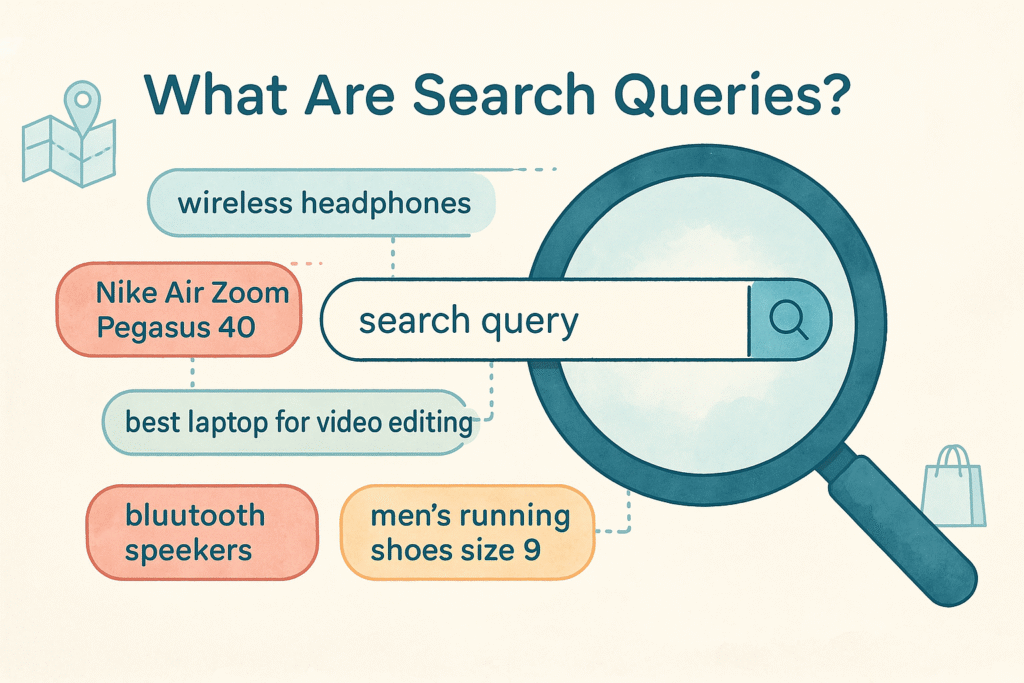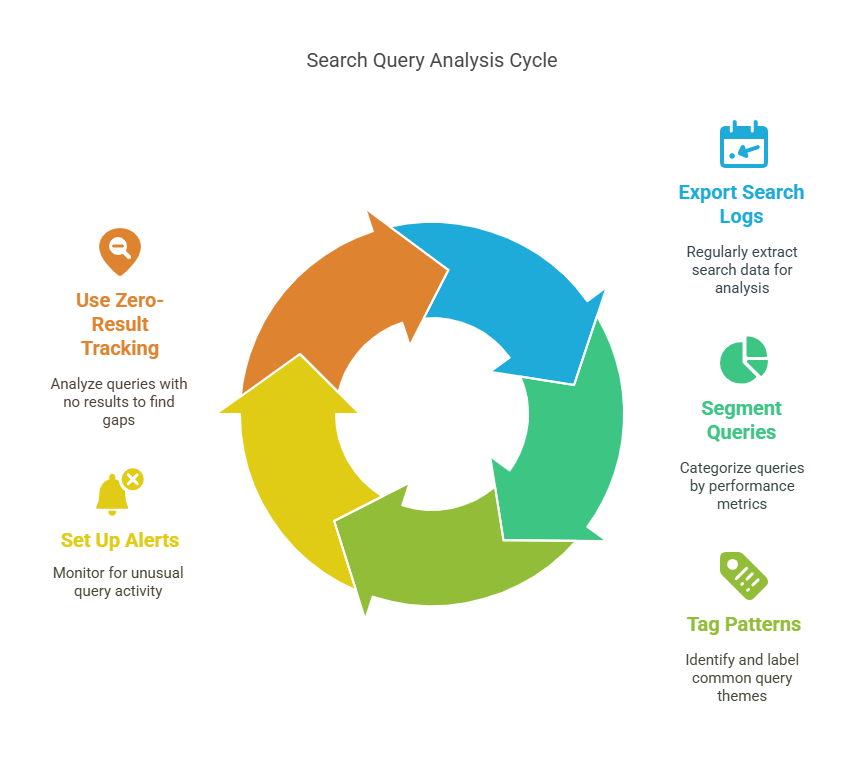Every time a shopper types something into your search bar, they’re giving you a clue. These search queries—short phrases, questions, or keywords—aren’t just requests for information. They’re signals. Signals that reveal buying intent, product interest, and sometimes, hidden friction in your store.
In this blog, we’ll explore the role of search queries in ecommerce, what they can tell you about your customers, and how to analyze them to boost your conversions and user experience.
What Are Search Queries?
Search queries are the exact terms or phrases users enter into your ecommerce site’s search bar. These could be:

- Simple keywords:
"wireless headphones" - Specific products:
"Nike Air Zoom Pegasus 40" - Problem-based terms:
"best laptop for video editing" - Incomplete or typo-heavy:
"bluutooth speekers" - Category-oriented:
"men's running shoes size 9"
These queries reflect what your shoppers want—often more accurately than their clicks or pageviews.
Why Search Queries Matter in Ecommerce
| Insight | What It Helps You Do |
|---|---|
| Customer Intent | Understand what shoppers are trying to buy |
| SEO Optimization | Discover long-tail phrases for paid or organic campaigns |
| UX Improvements | Fix navigation or filter gaps |
| Search Optimization | Improve your onsite search accuracy |
| Product Gaps | Identify demand for items you don’t stock yet |
Types of Search Queries You Should Track
1. High-Intent Queries
e.g., "Samsung 55 inch 4K Smart TV"
– Best for: Conversion optimization
2. Generic Category Queries
e.g., "men’s jackets"
– Best for: Improving filters, sorting, and category UX
3. Zero-Result Queries
e.g., "leather-free vegan handbag" (if you don’t stock it)
– Best for: Fixing product gaps or adding synonyms
4. Typo or Slang Queries
e.g., "bluetooh", "sneaks"
– Best for: Improving search tolerance
5. Repeat Queries
e.g., Queries that pop up again and again but don’t convert
– Best for: Auditing product quality, images, or titles
How to Analyze Search Queries for Better Results

Is There Any Tool That Handles Search Queries Intelligently
Yes, ExpertRec not only logs every query but uses machine learning to:
- Autocorrect misspelled queries in real time
- Suggest alternatives for no-result searches
- Re-rank results based on previous query behavior
- Personalize based on past searches and clicks
- Visualize top search queries in your dashboard
It doesn’t just read queries—it learns from them.
Conclusion: Search Queries Are a Conversion Goldmine
Your customers are telling you what they want. Are you listening?
By tracking and analyzing search queries, you can uncover hidden demand, refine your catalog, personalize the shopping experience, and ultimately drive more sales.
Because behind every query is a shopper hoping to click “Add to Cart.” Make sure you’re ready.
Frequently Asked Questions
1. What are search queries?
They are the words or phrases users enter into your site’s search bar to find products.
2. Why are search queries important?
They reveal real-time user intent, highlight product demand, and guide optimization efforts.
3. What can I learn from analyzing search queries?
You can find conversion opportunities, detect product gaps, and personalize shopper experiences.
4. How do I handle typos or unusual queries?
Use AI tools like ExpertRec that offer typo correction, synonym mapping, and fallback suggestions.
5. Can I use search query data in marketing?
Yes. High-frequency or converting search terms are excellent for SEO, paid ads, and email campaigns.




